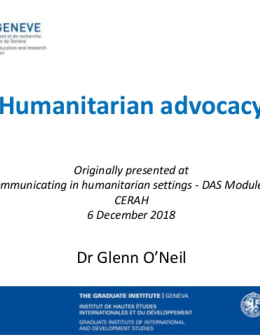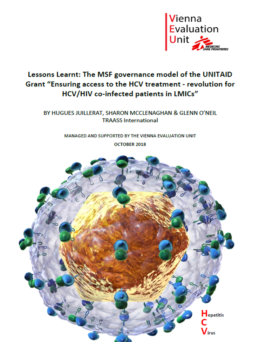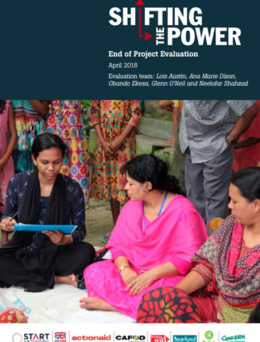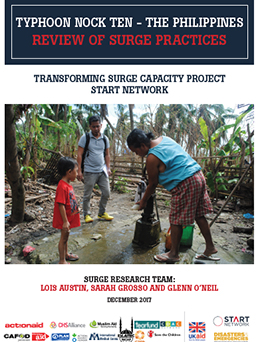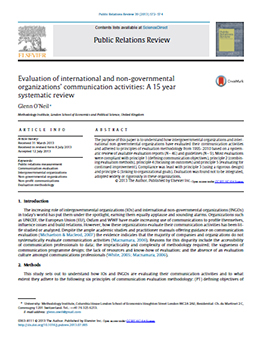Humanitarian Advocacy
This presentation provides an introduction to humanitarian advocacy; what is humanitarian advocacy and how does it differ from other types of advocacy and communications? The advocacy process and tactics are explained. Originally presented in December 2018 at the University of Geneva for the “Communicating in humanitarian settings” Module of CERAH.

